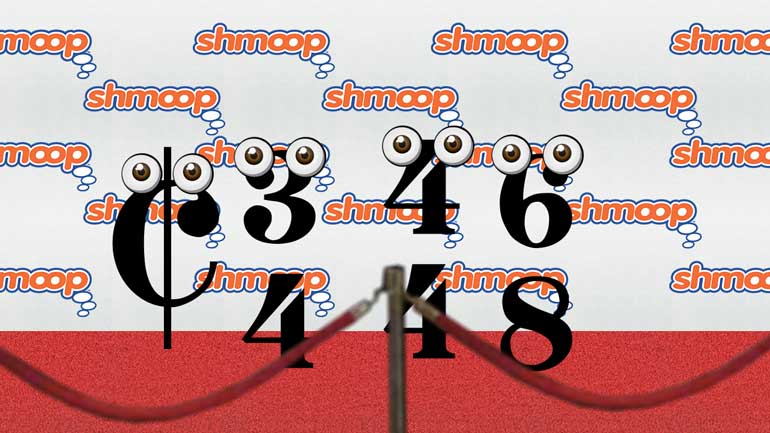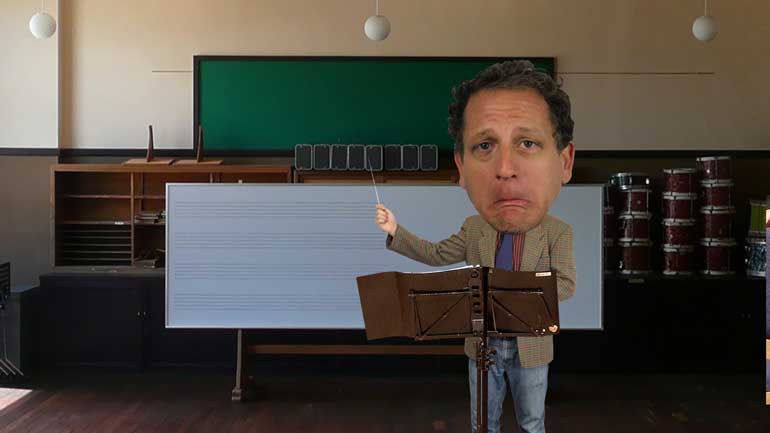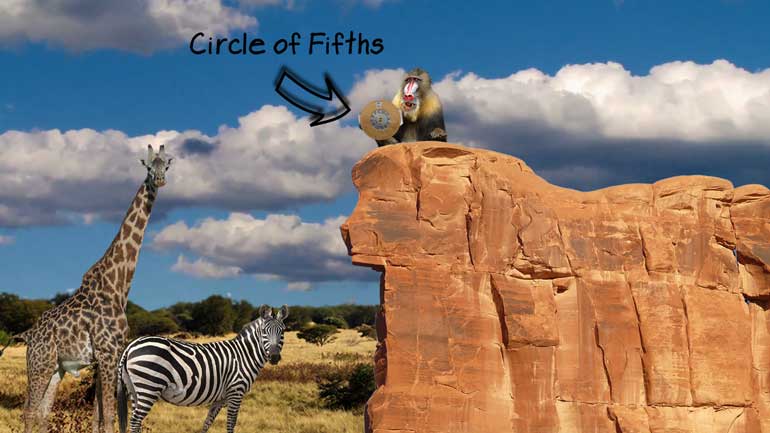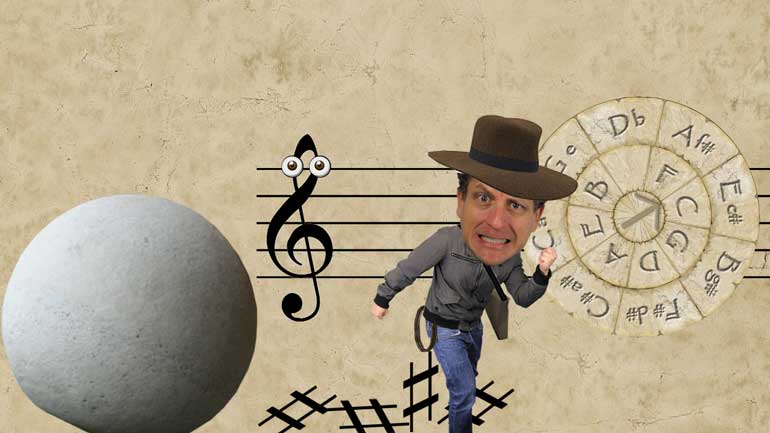ShmoopTube
Where Monty Python meets your 10th grade teacher.
Search Thousands of Shmoop Videos
AP Music Theory 4.2 Score Analysis 51 Views
Share It!
Description:
AP Music Theory 4.2 Score Analysis. What figured bass symbol best describes the above chord?
Transcript
- 00:04
And here's your shmoop du jour brought to you by the dominant
- 00:07
seventh chord. Lord of all seven chords ruler of the house of seventh, holding
- 00:13
dominion over all chords seven, okay you get the picture here's our question [Lord V holding a number 7]
- 00:17
what figured bass symbol best describes the above chord and
- 00:23
here are your potential answers.... alrighty well let's dive right in
Full Transcript
- 00:27
figured bass was musical shorthand used by Baroque era musicians to indicate
- 00:31
what notes in intervals to play above a baseline it's not commonly used in [Man playing a piano]
- 00:35
modern times presumably because no one thought to say if it ain't broke don't
- 00:40
fix it and just to be sure it's fresh in your mind let's take a second to review [Example of chords]
- 00:44
inversions because nothing's worse than rotting inversion they're right up there [Inversions rotting in a fridge]
- 00:48
with spoiled milk and old seafood. So we know that inversions are chords whose
- 00:53
lowest note is not the tonic a first inversion chord has the third as its [An inversion chord]
- 00:59
lowest note a second inversion cord has the fifth as its lowest note and a
- 01:05
third inversion chord which only applies to seventh chords has the seven as its
- 01:10
lowest note well those inversions are signified in figured bass by a pair of
- 01:14
numbers describing the intervals between the bottom note and the two other notes [Number intervals for inversions]
- 01:18
in the chord, for example a 6-4 inversion on G major which starts on the 5th
- 01:23
describes the resulting perfect forth between D and G and the major 6 between [6-4 inversion with inversions and a man appears]
- 01:28
D and B let's take a look at our example chord which is a G dominant 7th chord
- 01:32
inverted to start on the 7th well right away this eliminates answer D because
- 01:37
the 64 inversion refers to a second inversion diatonic triad not a seventh
- 01:42
chord. Six-four over an out good buddy right? Is that how it goes? Well that could [A boy in a lorry using a walky-talkie to communicate to another lorry driver]
- 01:48
explain why our career as a trucker never took off. Alright well now we know
- 01:52
we're looking for the corrected version of a seventh chord to find that let's [Seventh chord hiding in a tree]
- 01:56
count the intervals of our example chord from the bottom up from F to G is a
- 02:01
second and from F to B is a fourth well that means the correct answer is B; Four
- 02:06
Two, this figured bass marking describes the intervals in a third inversion [A four, two interval]
- 02:11
seventh chord Answer A 4, 3 refers to a seventh chord in
- 02:16
second inversion which would start on the fifth while answer C; 6, 5 refers to a
- 02:21
seven chord in first inversion which would start on the third. Hey, figured bass
- 02:26
is actually pretty helpful we kind of think they should bring it Bach to the [Man playing a piano quickly]
- 02:30
future... 6, 4 - Over and out.
Up Next
AP Music Theory 3.5 Score Analysis. What kind of chord is shown above?
Related Videos
AP Music Theory 4.1 Score Analysis. Which of the following answers is an example of compound meter?
AP Music Theory 1.1 Music Terminology, Terms & Symbols. Which of the following scales contains the notes shown above?
AP Music Theory 2.1 Music Terminology, Terms & Symbols. What is the key signature shown above?
AP Music Theory 3.2 Score Analysis. What notes would have sharps in the key of c sharp minor?




